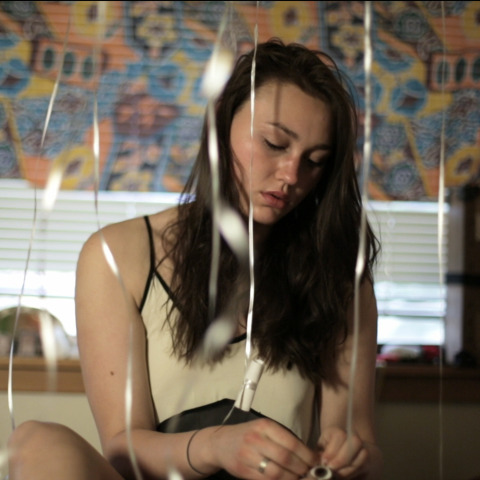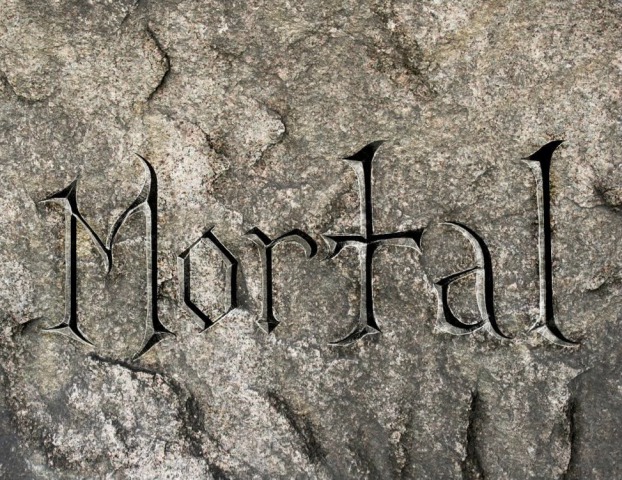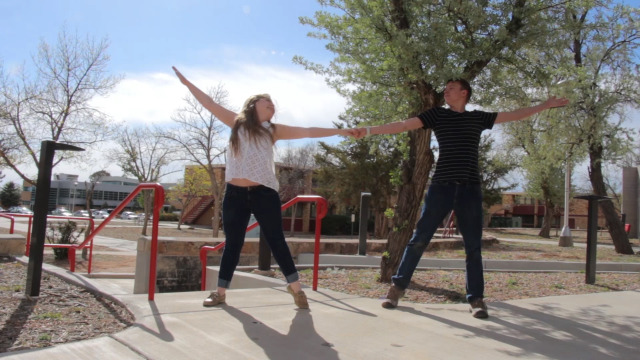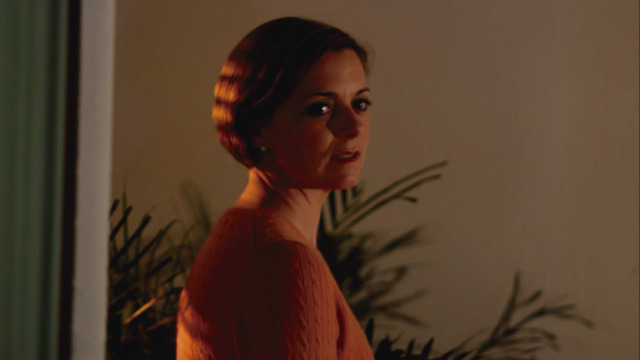Tags
Related Posts
Share This
SFIFF Student Shorts
The Santa Fe Independent Film Festival—running from Oct. 15 to Oct. 19 at The Screen, The Center for Contemporary Arts, The Jean Cocteau and The Lensic—continues this year to support and present the best of small-budget filmmaking to Santa Fe’s unique movie-going audience. Among the festival’s feature screenings, documentaries, panels and celebrations of Shirley Maclaine’s and George R.R. Martin’s Lifetime Achievement Awards, the student shorts are again granted their special evening in the spotlight.
Friday Oct. 17, 9:15 p.m. at the CCA, the works of Santa Fe University filmmakers Seth Fuller (“Dead Celebrity”), Alvie Hurt (“A Film”), Alejandra Castro-Castillo (“Crumbs”), Julian Romero (“Mortal”), Amy West (“Ritual”), Alec Brown (“Onomatopoeia”) and Yashira Ponce (“Norman Hyde”) will appear on the big screen.
“I think it’s good to get connected with the Santa Fe Independent Film Festival,” says Amy West, whose film “Ritual” marks her first Santa Fe Independent Film festival submission and acceptance. “I feel like it’s a community-building event, as well as an entertaining art event.” West adds that though she made the film as part of a cinematography class, as is the case of most student-submissions from SFUAD this year, she feels like the festival “will ignite the motivation to get involved with more festivals” in the future.
West adds that the goal of her cinematography class was to use only visuals to tell a story. She describes “Ritual,” therefore, as a visual poem about falling out of love.
“It’s pretty artsy,” West says, “a pretty cliché story, but hopefully told in a way that is relatable and unique. At the time we were assigned this project, I had just ended a relationship with my boyfriend of two years and I was like ‘well I can’t think about anything else anyways, let’s make use of these emotions.’ And it was good, I feel like it was healthy for me. I really like using film to look [at] emotions.”
Similarly, film student Julian Romero utilized the visual moving arts to capture his passion and fascination with archetypes and the universal message of love in his film “Mortals.”
“I wanted this story and this film to be something that wasn’t only a part of me but that was unlike anything else. It had a lot of personal touches.”
Romero’s 15-minute short depicts capturing the four horsemen of the apocalypse: war, pestilence, famine and death.
“I’ve always believed in mythical beings, satyrs, horsemen,” Romero says, describing his use of the supernatural and spiritual in his film. “I used human nature behind those beings, [as] archetypes rather than characters.” The strict placement of scenes too reflected those themes, such as two soldiers in the desert for war, a sexy woman in a club for pestilence and a destitute man driven to suicide at the Cross of the Martyrs for death. They are meant to capture the “essence,” Romero explains, of the four archetypes in modern time.
“Feminine, I used as the sponge of the film,” Romero continues. “Famine, in essence, is the being that feeds off of people, that starts hunger or stops hunger.” The character, Romero explains, turns out to the be the exception of humanity’s bleak judgment. “We fight a war all the time,” Romero says in reflection, “we’re in the war of our lives, we have war every time we make decisions for ourselves,” which, Romero explains, is the reasons for the horsemen, who were created at the beginning of time “to destroy where human error occurs. And love turns out,” Romero says, “to be not an error.”
And while Romero’s film will hopefully trigger some philosophical thought, sophomore filmmaker Alec Brown hopes to trigger the audience’s sense of humor.
“It’s a very contemporary film, a comedy fantasy,” Brown says, describing his film “Onomatopoeia,” about a college student who wakes up in a world where every sound he hears or makes is dubbed over with a human voice.
“I get a lot of my inspiration from ‘The Twilight Zone,’” Brown says, so “it’s about someone who enters a new dimension in a different way. Increasingly it just gets worse and worse for him.”
Because Brown wrote, directed, and acted in his film last year, the filmmaker shows excitement of having his first project made at SFUAD accepted in the festival. He becomes even more animated when thinking that three additional films he helped edit will screen at the same event.
“It’s going to be cool to watch my stuff on the big screen,” Brown says, “I think it’s some of my best editing.”
Film major Yashira Ponce went in a different direction with her short “Norman Hyde,” about a college teacher and literature writer who grades his students on sexual performance instead of academics.
“I wanted to create a character drama that had actual adults in them,” Ponce says, “because I’d seen a lot of student scripts that were focusing on people around our age.”
For her script, Ponce says she wanted to say “in an unconscious sly manner maybe,” that the protagonist Norman “was the enemy” and Lisa, Norman’s wife, was the strong character who “stand[s] up for herself, even if she didn’t do it in the best way possible.” And for this scenario, Ponce explains that she was grateful to work with her actors, who both listened and gave advice. It helped also that Ponce had a “positive” crews to back her up.
More than a grade in directing or cinematography class, Ponce says her project was a learning experience. “So I didn’t intend this film to be submitted to Con or Sundance,” Ponce says, “I just wanted to make a solid film.”
“I’m glad it’s being watched as part of the Santa Fe Student Shorts,” Ponce adds, regarding Friday night’s screening, “because there [will be] a student community that understands the difficulties that students might have at these initial stages. So they can critique with that in mind.”










 Jackalope Magazine is the student magazine of Santa Fe University of Art and Design. Building on the interdisciplinary nature of our education, we aim to showcase the talent of our university and character of our city.
Jackalope Magazine is the student magazine of Santa Fe University of Art and Design. Building on the interdisciplinary nature of our education, we aim to showcase the talent of our university and character of our city.
Recent Comments